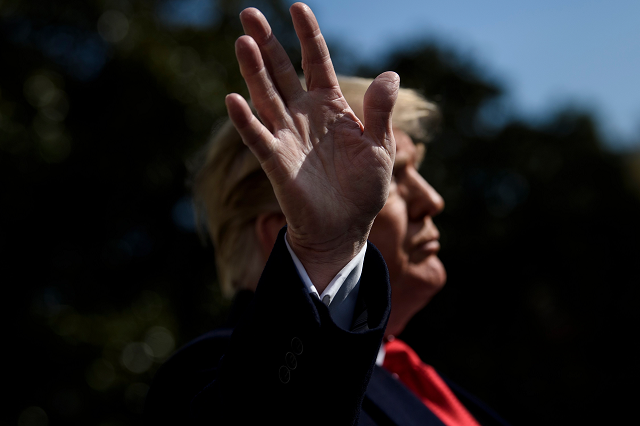
In new charges unveiled on Thursday by Special Counsel Robert Mueller, former top Trump aide Michael Cohen admitted direct communications with Russian President Vladimir Putin's office on behalf of Trump's business through the first half of 2016.
Trump, who earlier tweeted that the Mueller probe was an "illegal Joseph McCarthy style Witch Hunt," blasted Cohen as a "weak person" who lied to get a reduced sentence.
But the most recent news from the investigation suggests that Mueller, a cagey former FBI director, is holding back and could have more shocks in store for the US leader as he nears the conclusion of the 18-month-old investigation.
Trump ex-lawyer pleads guilty to lying over Russia deal
Cohen, who was Trump's personal lawyer and a senior executive in the president's real estate business, the Trump Organization, admitted to having lied to Congress about trying to negotiate a deal for a Trump Tower in Moscow well into the middle of 2016, even when Trump had wrapped up the Republican nomination for president.
Trump in the past denied any ongoing contacts with Moscow. But the criminal complaint filed on Thursday depicts Cohen in regular contact with Putin's top spokesperson Dmitry Peskov during that period, seeking to arrange a trip by Trump to Russia to meet Putin.
The complaint also says that Cohen kept senior Trump campaign figures, including members of Trump's family, informed of these efforts - suggesting Trump himself might have been in the loop. That could be trouble for a number of people if they have denied to Mueller or Congress knowledge of Russia contacts during that period.
Mueller has already shown he has evidence that the Trump campaign and Trump's family entertained offers of dirt on Clinton from Russia.
He is expected to soon charge conservative activist Jerome Corsi and campaign advisor Roger Stone in relation to their alleged attempts to coordinate with WikiLeaks over July-October 2016 as the group published Democratic emails damaging to Trump's election rival Hillary Clinton.
The US says the emails were hacked by Russian intelligence which supplied them to WikiLeaks, aiming to tilt the election in Trump's favor. Mueller has already indicted 25 Russians as part of a criminal "conspiracy" to influence the election.
The key question is, does Mueller have evidence that, in trying to contact WikiLeaks, Corsi and Stone were working on behalf of and with the knowledge of Trump or top Trump campaign officials? And would that mean they could be seen as conspiring with the Russians?
On Monday Mueller accused former Trump campaign chairman Paul Manafort of violating a cooperation deal by lying to investigators. What the lies were about remains a mystery, but it could underscore what most observers believe: that Mueller has far more evidence than his targets know.
Trump says he has written answers to Russia probe questions
Trump has held out the possibility of a pardon to Manafort, who he says was treated "cruelly" by the investigation. Now questions are being raised on whether Trump has obstructed justice by suggesting the pardon.
The new Cohen and Manafort charges came just after Trump returned answers to a long list of questions submitted to him by Mueller that focus on Russia contacts.
The White House delayed answering the questions since the beginning of this year, worried that Trump could be trapped in a possible lie by making statements contrary to evidence presented Mueller by others.
Trump's anger about the investigation raises the possibility that his answers might be contradicted by Cohen, Manafort and others.
1732503274-0/Untitled-design-(43)1732503274-0-405x300.webp)
1732501636-0/Untitled-design-(42)1732501636-0-165x106.webp)

1732498967-0/Outer-Banks--(1)1732498967-0-165x106.webp)
1732086766-0/BeFunky-collage-(74)1732086766-0-165x106.webp)












COMMENTS
Comments are moderated and generally will be posted if they are on-topic and not abusive.
For more information, please see our Comments FAQ